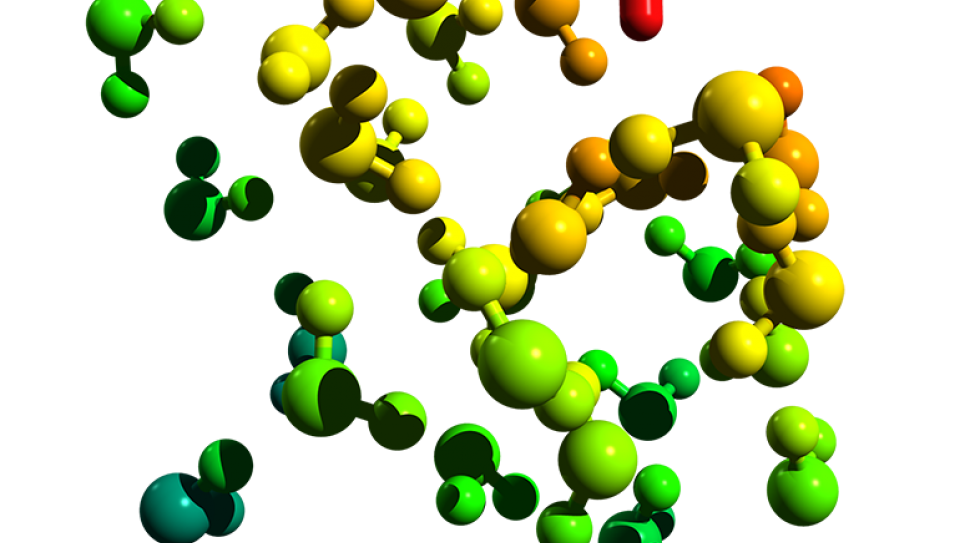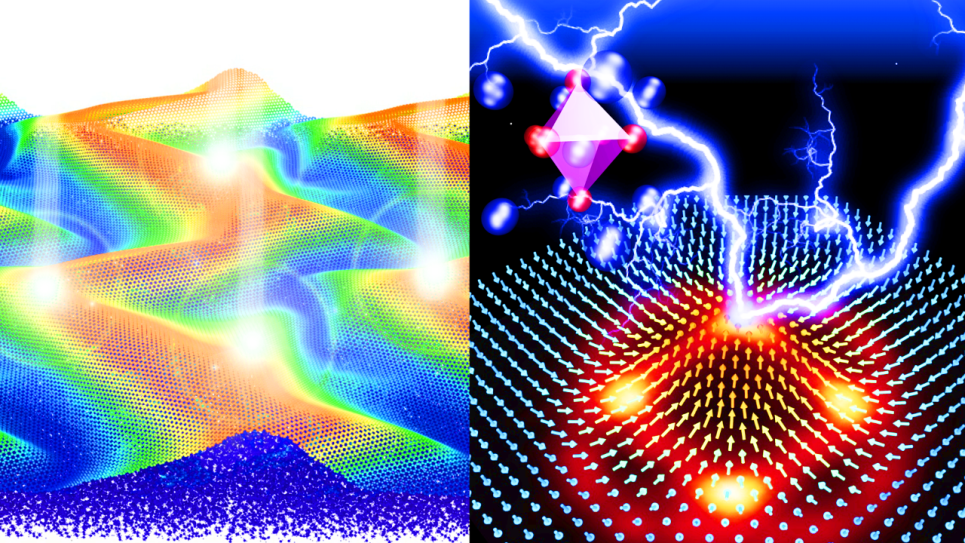
State-of-the Art Simulations of Liquid Phenomena
Under this INCITE award, researchers are studying the behaviors of liquids and their solutes. Such studies are of paramount importance given that most chemical and biological processes occur in the liquid phase. High-fidelity quantum mechanics methods will be used to study water and ionic liquids, as well as the important processes that occur in them.
The team continues to examine solvated protons, halides, NO3-, HSO4-, ClO4-, and SO4-2, due to their importance in many aqueous chemical reactions. Further, ionic liquids are of interest for their potential to improve the mass and/or charge transport in dye-sensitized solar cells, and for their use as or with extractants, which separate complexes of the lanthanide elements.
Using the team’s primary electronic structure code, GAMESS, on Mira, researchers are performing high-level correlated ab initio calculations to address the key issues of water structure and bonding, and the nature of solvation of electrolytes that contain ions. The methods used in these calculations are well-correlated electronic structure theory methods based on second order perturbation theory (MP2). In order to combine quantum mechanics (QM) methods with molecular dynamics (MD) simulations for complex systems, a fragment molecular orbital (FMO) method, which divides a molecular system into smaller units, runs alongside MP2 and exploits Mira’s multi-level parallelism.
GAMESS is providing, for the first time, a systematic and highly accurate description and interpretation of these processes. During year one, researchers performed fully MP2 MD simulations for a proton solvated with 20 water molecules, developing a program to analyze intermolecular interactions during proton transfer. These will be compared to current replica exchange MD (REMD) simulations of the solvated proton, testing the ability of FMO2 (two-body FMO)/MP2 simulations with REMD to correctly describe the proton transfer and solvated proton decomposition processes.
